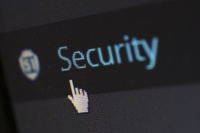As the year approaches an end, almost sixty percent of part- and full-time workers in the United States of America are working from home. One of the main components to make working from home functional is the internet. The coronavirus has been a dilemma we have had to face since the beginning of the year. The pandemic is the main reason many people are embracing digital functions more than before.
A worldwide study by Keeper Security, Inc. and Ponemon Institute LLC from October 2020 shows that forty-four percent of employees working from home had faith in their agencies’ abilities to fend off cyberattacks. Before the pandemic, the research showed that seventy-one percent of employees had confidence. If you are among the individuals who are worried about their cybersecurity, below are some ideas worth considering.
Avoid Delaying Software Updates
 When some people receive software updates on their digital workstations, they tend to procrastinate the installation process. These updates, including the ones from antivirus software programs, solve security flaws, and assist in safeguarding data. Regardless of your device, it is advisable to pay attention to software updates.
When some people receive software updates on their digital workstations, they tend to procrastinate the installation process. These updates, including the ones from antivirus software programs, solve security flaws, and assist in safeguarding data. Regardless of your device, it is advisable to pay attention to software updates.
Keep Your VPN Active
 If you are already using a Virtual Private Network (VPN) to access your company’s network, you are likely aware of the benefits of the program. A VPN secures data exchange between online users, in this case, the employee and employer. Such software is designed to combat cybersecurity, among other issues online users face. If you already use a VPN for your internet activity, avoid turning it off, especially when working.
If you are already using a Virtual Private Network (VPN) to access your company’s network, you are likely aware of the benefits of the program. A VPN secures data exchange between online users, in this case, the employee and employer. Such software is designed to combat cybersecurity, among other issues online users face. If you already use a VPN for your internet activity, avoid turning it off, especially when working.
Stay Conscious of Phishing Scams
 Phishing scams are very prevalent nowadays, and cybersecurity experts advise internet users to remain vigilant to avoid falling victim. If scammers or hackers get their hands on work data, the consequences can be detrimental. The NCSA executive director (National Cyber Security Alliance) Kelvin Coleman is one of the people emphasizing this matter.
Phishing scams are very prevalent nowadays, and cybersecurity experts advise internet users to remain vigilant to avoid falling victim. If scammers or hackers get their hands on work data, the consequences can be detrimental. The NCSA executive director (National Cyber Security Alliance) Kelvin Coleman is one of the people emphasizing this matter.
Improve Your Passwords
Passwords serve as digital access keys and are required when accessing various information and platforms. The NCSA recommends individuals to use lengthy passwords that feature varying characters like a combination of lowercase and uppercase letters, numbers, and specific figures.
Working from home has its benefits. However, without the right security standards, it’s risky and can lead to severe inconveniences later. With the information above in mind, maintaining a secure online working environment should straightforward.




